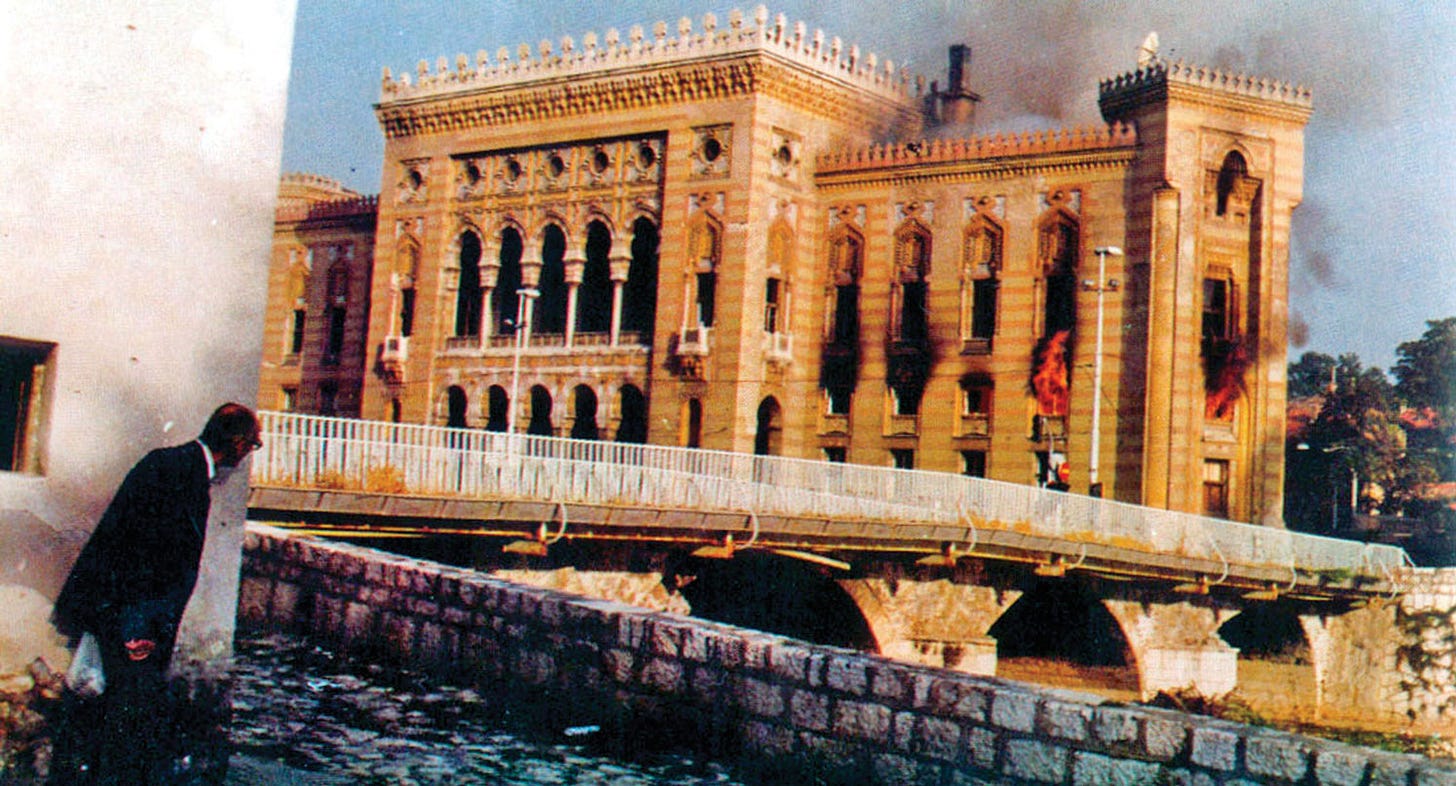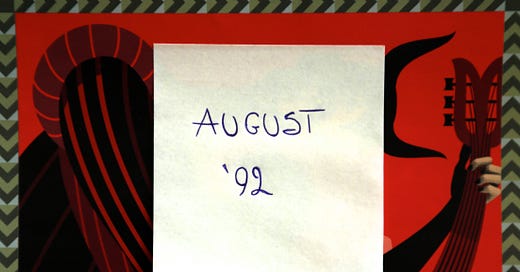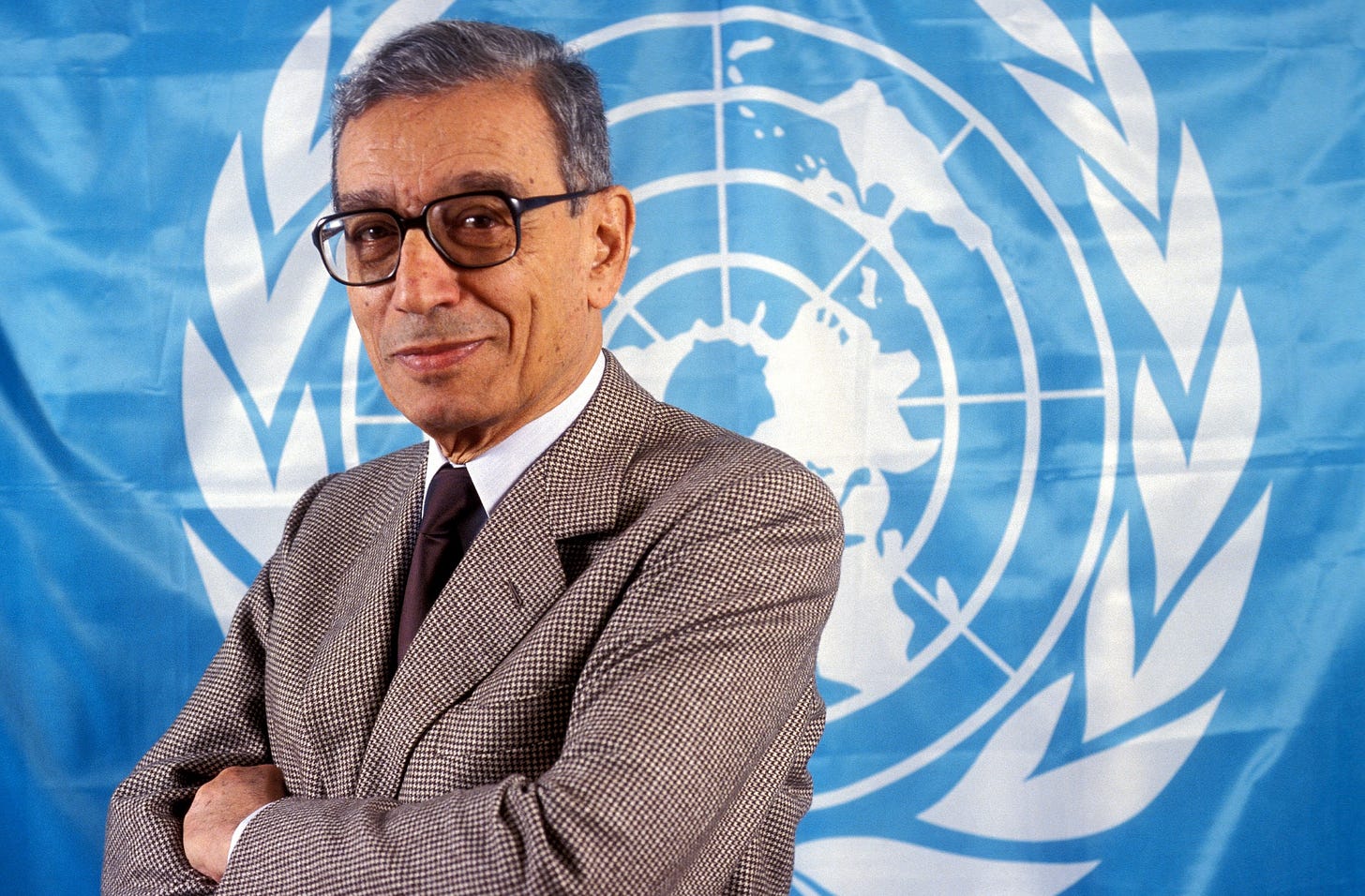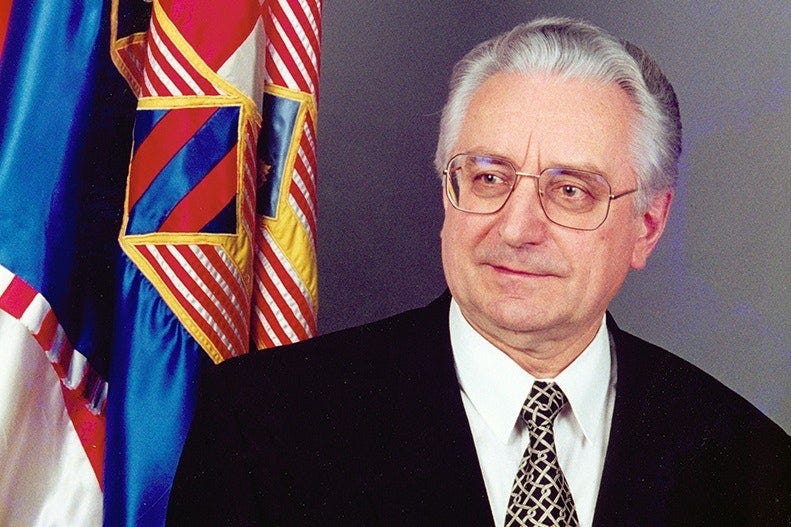August 1992.
The Western world has just discovered the horrors of the Serbian concentration camps in Bosnia and Herzegovina for ethnic Muslim civilians, with the purpose to make ethnic cleansing more systematic [you can listen to the latest episode of BarBalkans - Podcast here].
The answer again is diplomacy, UN Resolutions and international conferences.
However, on the ground the situation is tragic. And it continues to worsen due to the Croatian President Franjo Tuđman’s ambiguous attitude, with heavy repercussions both in Zagreb and in the Bosnian theater of war.
The hypocrisy of the arms embargo
The publication of the journalistic investigation on the concentration camps in Bosnia and Herzegovina (Roy Gutman will win the Pulitzer Prize for it) heavily affects the international political scene.
On August 3, the Bosnian President, Alija Izetbegović, addresses the UN Security Council to abolish Resolution 713. This is the Resolution imposing a «general and total embargo on all supplies of arms and war material» on Yugoslavia since September 25, 1991.
For almost a year now, Slobodan Milošević’ “Kansas City Shuffle” has been affecting the Balkans.
Izetbegović invokes Article 51 of the UN Charter, which guarantees the right to self-defense in case of armed aggression.
The passivity of Western governments is demonstrated by their unwillingness to abandon a hypocritical position.
The embargo affects only the Republic of Bosnia and Herzegovina, because Belgrade simply does not need external arm supplies. The war in Bosnia started with the arsenals full of weapons, to supply Ratko Mladić’ Bosnian Serb army almost with no limits.
But Sarajevo is told that lifting the embargo would result in more weapons in circulation, more deaths and more destruction.
Inevitably, support is sought, accepted and offered by Islamic countries, that have every interest in expanding their political and religious influence in the Balkan region.

The Western inertia is broken only by the risk of a Serbian attack to a British plane landing at the Sarajevo airport.
This is why the UN Security Council adopts Resolution 770 on August 13. It does not only orders «unimpeded and continuous access to all camps, prisons and detention centers» for the Red Cross and humanitarian organizations.
But more importantly, it calls on the Member States to take «all necessary measures» to facilitate humanitarian aid in Bosnia, including the issue of armed force.
However, the UN Secretary General, Boutros Boutros-Ghali, cripples Resolution 770, interpreting it in the most restrictive way possible: Blue Helmets can only escort convoys and defend themselves.
The UNPROFOR is given the new mission of ensuring the survival of the Bosnian population, but with no power to impose peace.
On the very same day, Resolution 771 is also approved, requiring all warring parties to «immediately cease all violations of international humanitarian law, including actions such as ethnic cleansing».
Moreover, the UN Commission on Human Rights instructs Tadeusz Mazowiecki to gather all «possible and credible» information on violations since the beginning of the Yugoslav Wars in 1991.
In Belgrade and Banja Luka, these UN Resolutions trigger two different reactions.
The Prime Minister of the Federal Republic of Yugoslavia, Milan Panić, tries to improve the image of Serbia on the international scene, demanding to put both the Yugoslav-Bosnian border and the Serbian and Montenegrin military bases under UN control.
And then, he joins (the few remaining) liberal voices, that call for Serbian President Milošević resignation.
On the opposite, Radovan Karadžić’ Bosnian Serbs break the last bonds with Bosnia.
Starting from August 12, the leaders of the Serbian Republic of Bosnia and Herzegovina got rid of the Bosnian reference and call it only Republika Sprska.
The authoritarian shift in Croatia
In this scenario, the Croatian President Tuđman takes advantage of the fact that the international public opinion and diplomacy are focused only on the situation in Bosnia and Herzegovina.
First of all - thanks to the agreement with Izetbegović - Croats of Bosnia are granted dual citizenship and can participate in the parliamentary elections in Croatia on August 1 and 2.
Thanks to the overwhelming support of the Herzegovinian diaspora, the Croatian Democratic Union (HDZ) led by Tuđman obtains 43 percent of the vote. Due to the majority system, two-thirds of the Parliament are now in the hands of nationalists.
The democratic unity government is dissolved and Hrvoje Šarinić, a puppet in the hands of the Croatian President, is appointed Prime Minister.
The authoritarian shift means also «violations of international humanitarian law», according to Resolution 771.
Ethnic Serbs - «the Byzantine rascal», as Tuđman says, referring to their Orthodox faith - are persecuted, while the international attention is distracted by the disturbing level of violence of the concentration camps in Bosnia.
Real massacres are being committed in Gospić, Karlovac, Sisak, Virovitica, Ogulin and Saruvar. Serbian homes and places of worship are devastated, and evictions from border areas, abuses and murders of prisoners of war take place in Croatia.
The Croatian leader appeals to the «national cause» in the ongoing conflict against Belgrade and defines «internal enemies» all those who denounce the persecution of ethnic Serbs, the secret police power and the violations of the independence of the judiciary.
Between London and Sarajevo
Considering the complexity of the situation in the Balkan region, the United Kingdom (which holds the Presidency of the European Community) decides to convene in London an International Conference on the former Yugoslavia.
Many political actors attend to the London Conference.
The Member States of the European Community, the former Republics of Yugoslavia (Slovenia, Croatia, Bosnia and Herzegovina and Macedonia), the United States, Canada, Russia, China, Japan, Czechoslovakia (chair of the Conference on Security and Cooperation in Europe), Turkey (representative of the Organization of the Islamic Cooperation), the neighboring countries (Albania, Austria, Bulgaria, Romania and Hungary). As observers, the Yugoslav Federation and the representatives of Serbia, of Bosnian Croats, of Bosnian Serbs and of Kosovo.
The Conference - held on August 26 and 27 and chaired by Boutros-Ghali and the British Prime Minister, John Major - aims to settle peace in the Western Balkans once and for all.
In Belgrade, it is time for a showdown between the two political currents. The federal Prime Minister Panić does not want Milošević in London («I don't want to be on the losing team»), but the Serbian President is explicitly invited by the British diplomats.
The real leader in Belgrade is still Milošević, who is succeeding in his Greater Serbia project. He still maintains control of part of Slavonia and Krajina (in Croatia), while in Bosnia he has conquered two-thirds of the territory: ethnic cleansig operations (with genocides and diaspora of non-Orthodox civilians) are taking place everywhere.
The government in Bosnia is impatient and less confident in a diplomatic solution.
President Izetbegović express this disillusion, first in words and then in deed.
In an interview for the UAE newspaper Al Khaleef, Izetbegović openly states that «our country will not be liberated except with weapons».
On the eve of the London Conference, on August 25, he unleashed Operation Jug ‘92, to break the siege of Sarajevo and to liberate the capital city of Bosnia.
But during the night of August 25, one of the most dramatic episodes of the siege of Sarajevo occurs. This is the attack and destruction of the Vijećnica, the National Library of Bosnia and Herzegovina.
From the hills surrounding the city, the Bosnian Serb forces deliberately aim at the historic building, that embodies the many intertwined souls of Sarajevo.
More than 1.5 million ancient volumes catch fire and centuries of history go up in smoke in a few hours, despite the desperate efforts by citizens and firefighters (targeted by snipers) to extinguish the fire.
In particular by Aida Buturović, known as “the librarian of Sarajevo”. After entering the historical section in the midst of the fire, she manages to save some of the most valuable tomes. But as she flees into the street, shrapnel hits her in the head and kills her instantly.

Meanwhile, the document unanimously approved at the London Conference is characterized by grand ideals and bureaucratic novelties, rather than truly deployable solutions.
The 13 peace-building principles include non-recognition of territories conquered thanks to the use of violence, respect for human rights, closure of concentration camps and personal accountability for war crimes and ethnic cleansing.
In Bosnia and Herzegovina, within 96 hours, Serbian troops should put heavy weapons under UNPROFOR control and abandon the cities of Sarajevo, Goražde, Jajce and Bihać within a week.
The international community also decides to establish a Steering Committee, to coordinate peace efforts. It will be a huge bureaucratic apparatus (with a Secretariat and six working groups) based in Geneva.
Given the results of the London Conference and the continuing war in Bosnia, the German newspaper Frankfurter Allgemeine Zeitung publishes a paradigmatic op-ed, titled Cabaret and genocide.
It is a «cabaret» for all the unaddressed issues in London:
The Western military intervention;
The tightening of sanctions against the Federal Republic of Yugoslavia;
The exclusive legacy of Tito’s Federation, claimed by Serbia;
The oppression of minorities, including Albanians of Kosovo;
The relationship with the Republic of Bosnia and Herzegovina’s authorities, as the representatives of Republika Sprska and of the Croatian Republic of Herzeg-Bosnia are treated as equals.
Once again, the international community stuns the Balkan region with too many words, but the situation on the ground remains unchanged.
If you know someone who can be interested in this newsletter, why not give them a gift subscription?
Here is the archive of BarBalkans - Podcast:
And here the summary of 1991.




















Share this post